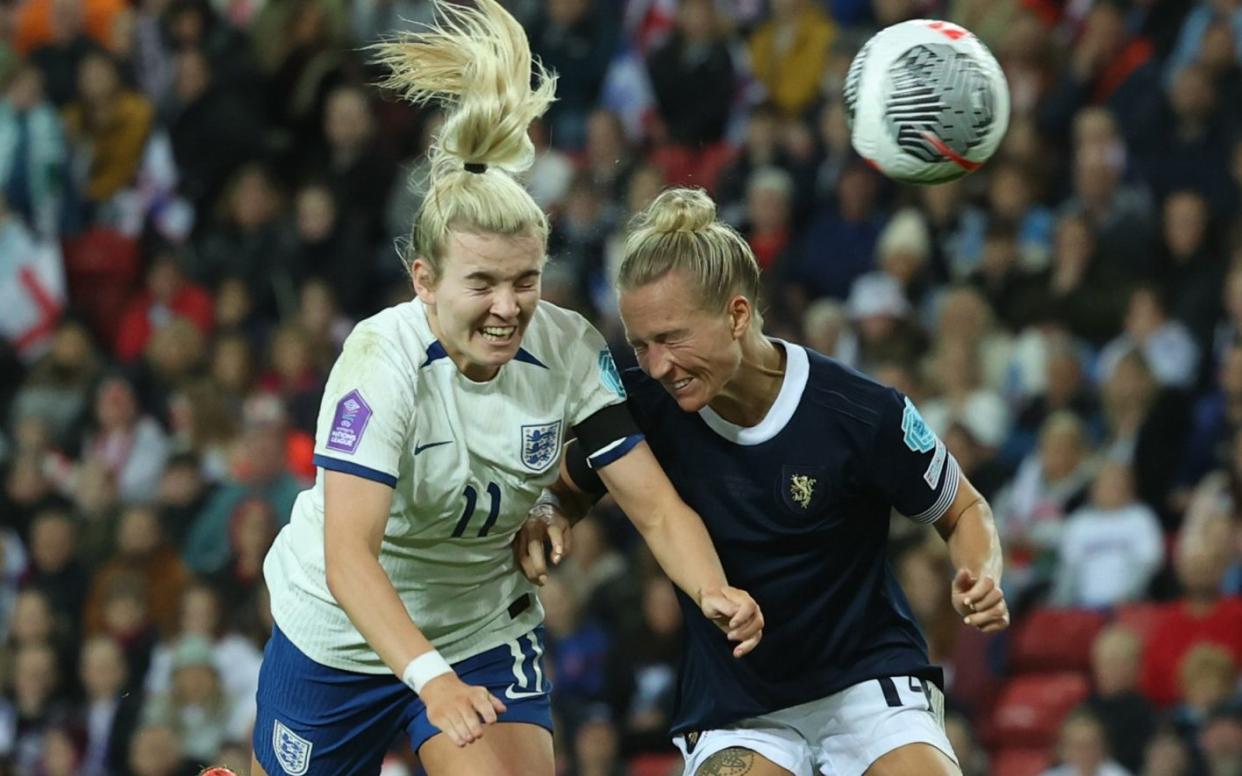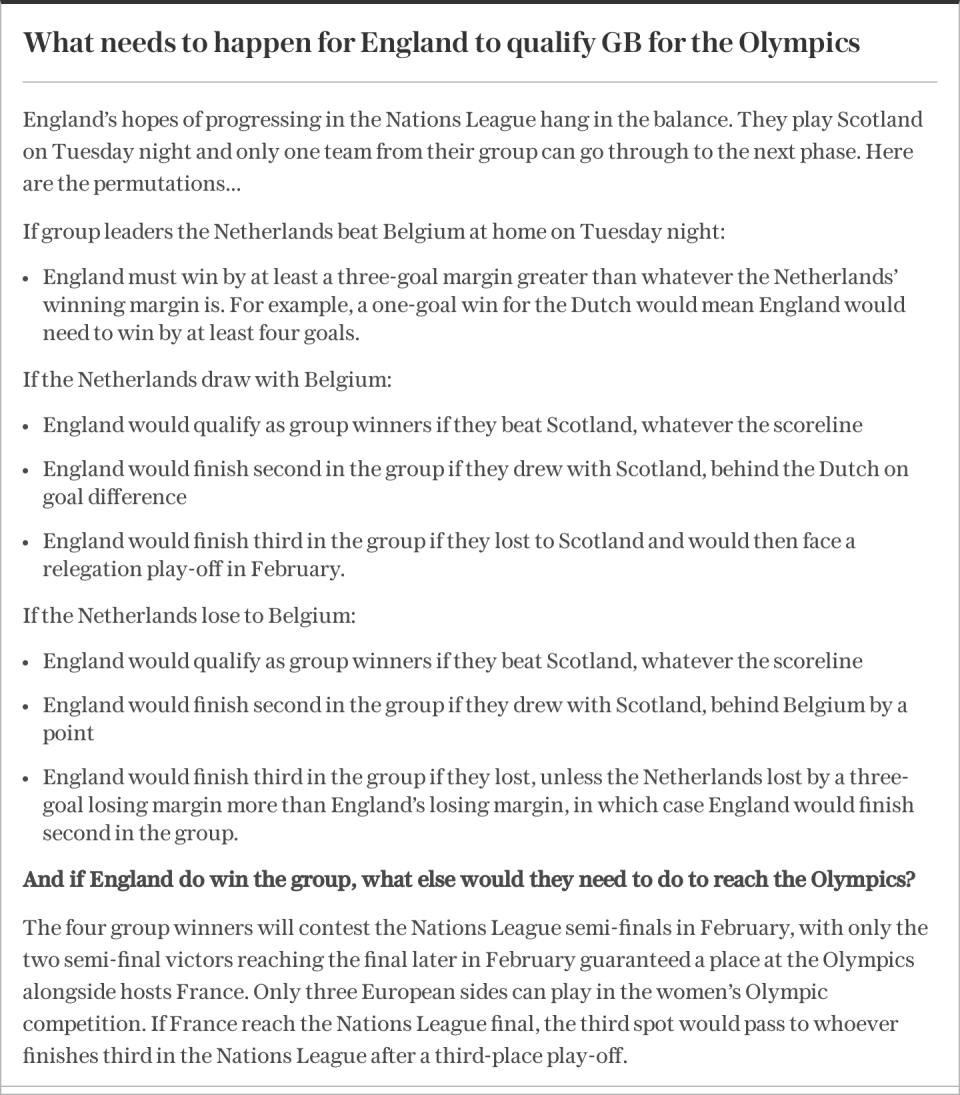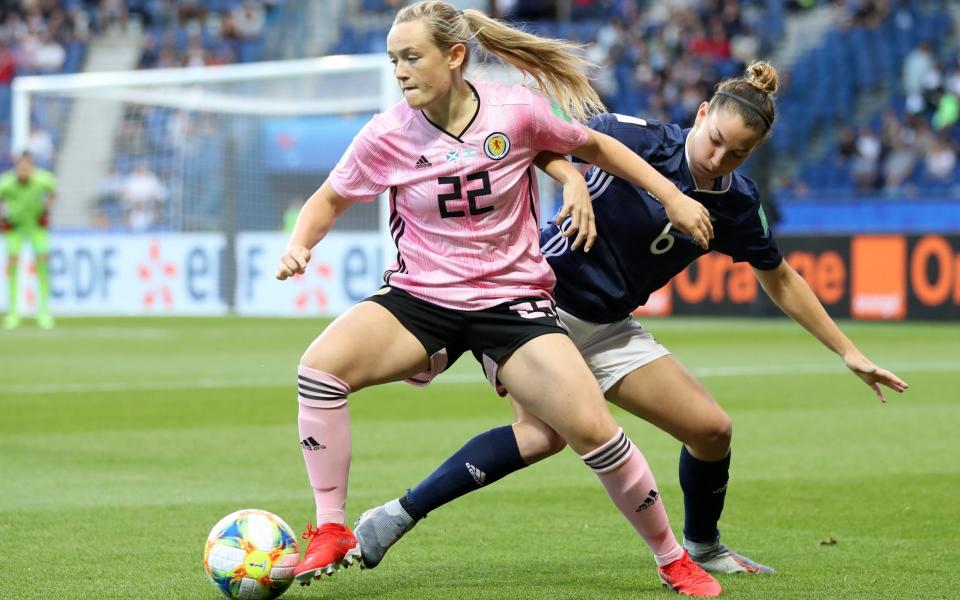To play in the Olympics, Scotland players must lose to England – that's a farce

After England’s brilliant comeback to edge past the Netherlands at Wembley, Great Britain’s Olympic flame is still burning. But their qualification battle will go down to the wire – and in the most extraordinary of circumstances.
The Lionesses must beat Scotland in their final Nations League group game on Tuesday night – and better the result of their Dutch counterparts – to qualify Team GB for the Games next summer in Paris.
If England and the Netherlands both win, the Lionesses would need to triumph by at least a three-goal margin greater than the Dutch.
Essentially, Scottish players must front up to their English foes, knowing deep down that they must surrender to their opponents if they are to have any hope of playing in the Olympics.
Already, it feels strange and lopsided. The Netherlands, who exposed England’s defensive frailties in a flat first half at Wembley, have every right to call it unfair.
With the Lionesses the nominated nation to qualify on behalf of Team GB, pitting England and Scotland in the same group makes a mockery of the Nations League as a qualification process for the Olympics. A fixture that would normally be steeped in fierce rivalry has lost all inkling of integrity, before a ball has even been kicked.

A penny for the thoughts of Netherlands head coach Andries Jonker, who appeared in good spirits despite watching his side squander a two-goal lead on a bitterly cold night in north London.
When asked about England and Scotland being in the same group, he responded: “When the draw was made, I said to the players the only thing we can do is keep this in our hands. Straight away, it was annoying, but it wasn’t going to change.”
Yet he gave a rather diplomatic response when pressed on the conundrum. “For many years, Great Britain has participated in the Olympics as Team Great Britain,” he said, a wry smile spreading across his face. “It’s strange, but it’s not going to change.
“I was present in history lessons at school. We learned about the relationship between the British countries but they want nothing more than to beat each other. For a Scottish sportsperson, it’s an honour to beat the English.
“In rugby, Scotland and England is always a fight. In the women’s game, it’s going to be the same, in spite of the fact that a player like [Scotland and Chelsea star] Erin Cuthbert would participate in a Great Britain team.”
There are two things to unpack here. One, that the head coach of the Netherlands women’s football team is an unlikely rugby admirer who, in referencing England’s upcoming battle with the Auld Enemy, was doing his best to offer an optimistic outlook.

But the fact he name-dropped Cuthbert, Scotland’s taliswoman who would undeniably make the cut for a Great Britain team, was telling. Given her country failed to qualify for this year’s World Cup, next year’s Olympics in Paris would be the pinnacle of Cuthbert’s career.
Yes, any GB squad would likely feature a large contingent of English players. There were only three non-English players in Hege Riise’s Great Britain squad in Tokyo – Caroline Weir, Kim Little and Wales’ Sophie Ingle. The latter two were the then respective captains of the Scotland and Wales national teams.
However, the same rationale mentioned above for Cuthbert applies to her team-mates, such as Real Madrid’s Weir – should she recover from a serious knee injury in time – and Aston Villa forward Kirsty Hanson. Both would be in the mix for a Great Britain side.
“I hope Scotland will at least try with everything they have,” said Netherlands striker Lineth Beerensteyn, whose brace of first-half goals at Wembley saw Great Britain’s Olympic hopes hanging by a thread.
You wonder if her prayers will be answered.

 Yahoo News
Yahoo News 
